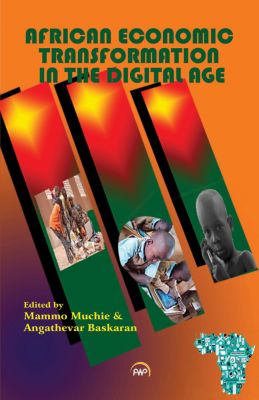The digital age is upon us. The current period is said to be under the fourth industrial revolution of robotization, digitalisation, and nanotechnology driven advanced materials. Biotechnology and cogno technology are driving the world. There are real concerns over whether or not technology should advance to a position of producing all the goods and services that humans need and consume. This is a real question in a world awash with goods and services produced with high end technological tools that would depress the wages of workers, and are then transformed into low wage earners who also do not have direct links to the sources and capacities for consumption. The ICT revolution is bringing about a major paradigm shift by having brought far-reaching changes in the way interactions are taking place among peoples, economies, societies and communities in the world today. We have now more and more e-people and fewer and fewer people that have not gone electronic yet. The number of those who go e- is growing rapidly, and those who have not yet become computer illiterate appear to be dwindling fast. That e-people are populating the world as electronic herds everywhere in the world making communication instantaneous is a reality that is with us now. It raises big opportunities as well as challenges. It looks everything that used to be done with human expenditure of energy and touch is changing with the application of ICTs in all walks of life from the military using drones to computers facilitating information on how to process social and government instruments such as passports and paying taxes. Social media is now pervasive and Africa is increasingly part of a world populated by massive data. Industrializing Africa now means, the continent entering the digital age, catching up and leapfrogging to the 4th industrial revolution. This is a timely and engaging book, reflecting on Africa s process of industrialization and socio-political construction in a digital age.

